Gendered health institutions: examining the organization of health services and men’s use of HIV testing in Malawi
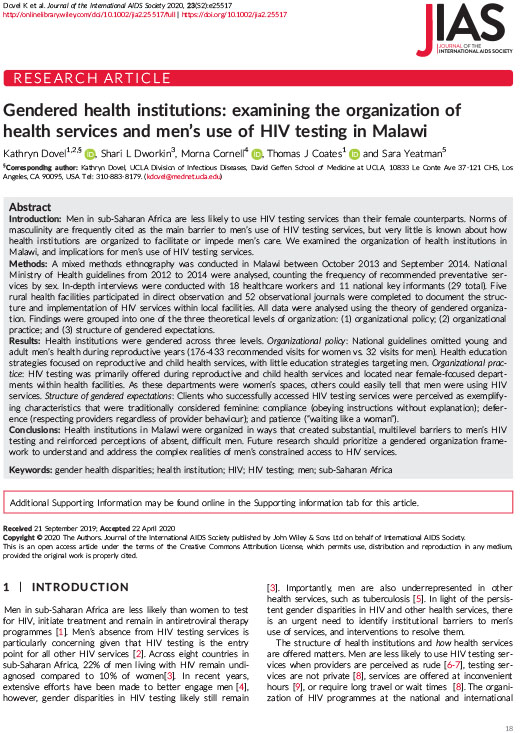
Introduction Men in sub-Saharan Africa are less likely to use HIV testing services than their female counterparts. Norms of masculinity are frequently cited as the main barrier to men’s use of HIV testing services, but very little is known about how health institutions are organized to facilitate or impede men’s care. We examined the organization […]
Frequency of visits to health facilities and HIV services offered to men, Malawi
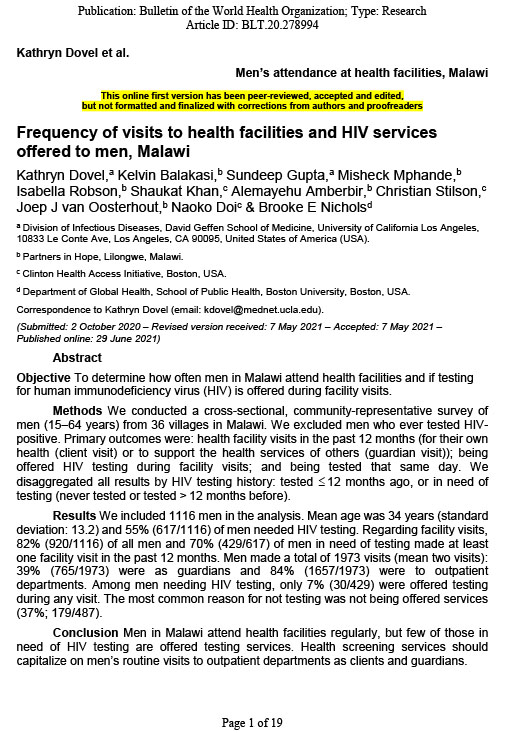
Objective To determine how often men in Malawi attend health facilities and if testing for human immunodeficiency virus (HIV) is offered during facility visits. Methods We conducted a cross-sectional, community-representative survey of men (15–64 years) from 36 villages in Malawi. We excluded men who ever tested HIV-positive. Primary outcomes were: health facility visits in the […]
Leaving No Man Behind: Improving HIV Services for Men
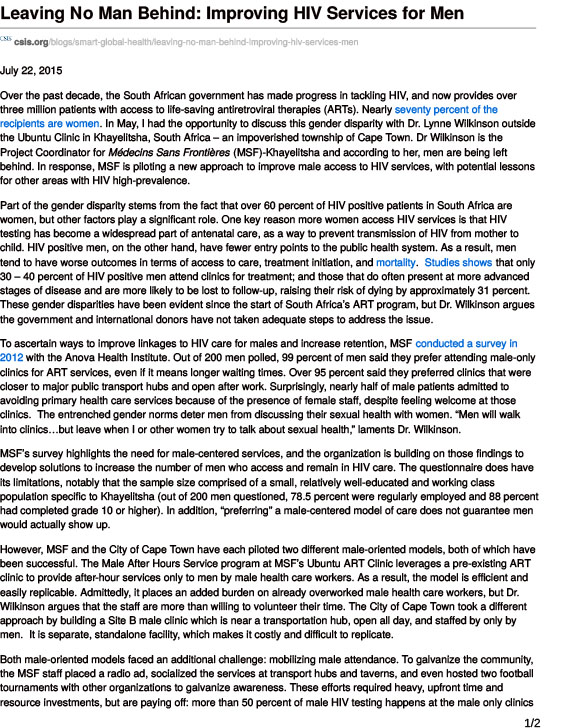
Over the past decade, the South African government has made progress in tackling HIV, and now provides over three million patients with access to life-saving antiretroviral therapies (ARTs). Nearly seventy percent of the recipients are women. In May, I had the opportunity to discuss this gender disparity with Dr. Lynne Wilkinson outside the Ubuntu Clinic […]
The impact of gender and income on survival and retention in a South African antiretroviral therapy programme
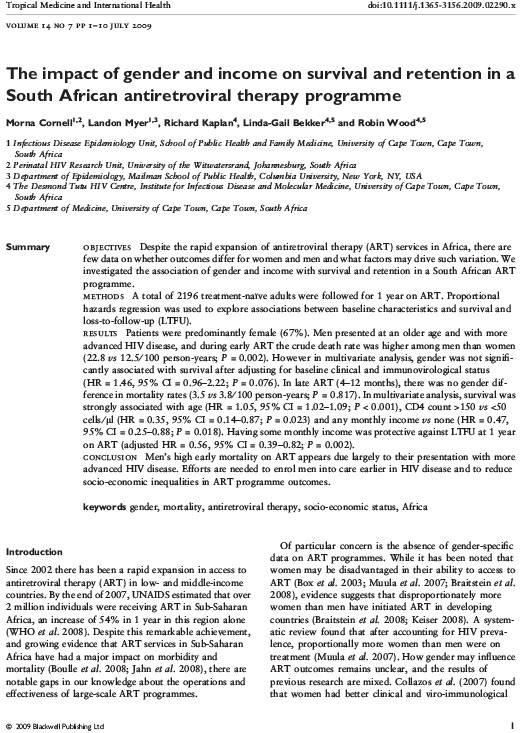
Objectives Despite the rapid expansion of antiretroviral therapy (ART) services in Africa, there are few data on whether outcomes differ for women and men and what factors may drive such variation. We investigated the association of gender and income with survival and retention in a South African ART programme. Methods A total of 2196 treatment-naïve adults were […]
Public health blindness towards men in HIV programmes in Africa
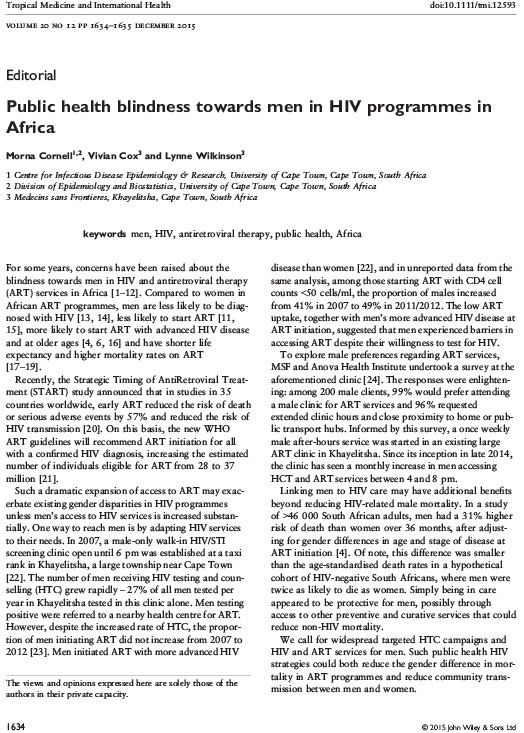
For some years, concerns have been raised about the blindness towards men in HIV and antiretroviral therapy (ART) services in Africa. Compared to women in African ART programmes, men are less likely to be diagnosed with HIV, less likely to start ART, more likely to start ART with advanced HIV disease and at older ages […]
Perpetuating gender inequity through uneven reporting
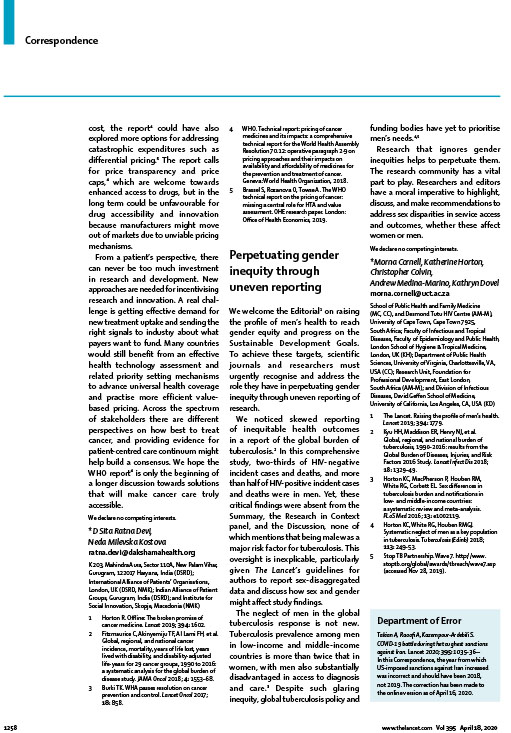
We welcome the Editorial on raising the profile of men’s health to reach gender equity and progress on the Sustainable Development Goals. To achieve these targets, scientific journals and researchers must urgently recognise and address the role they have in perpetuating gender inequity through uneven reporting of research.
Moving beyond gender stereotypes
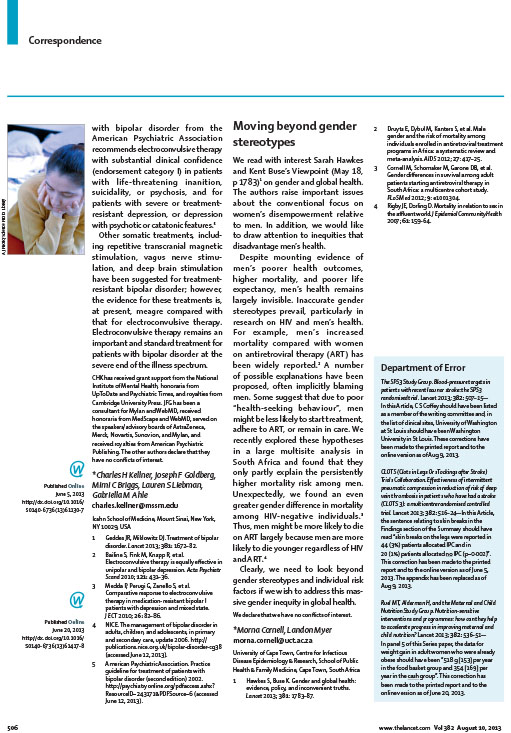
We read with interest Sarah Hawkes and Kent Buse’s Viewpoint (May 18, p 1783) on gender and global health. The authors raise important issues about the conventional focus on women’s disempowerment relative to men. In addition, we would like to draw attention to inequities that disadvantage men’s health.
Men and antiretroviral therapy in Africa: our blind spot
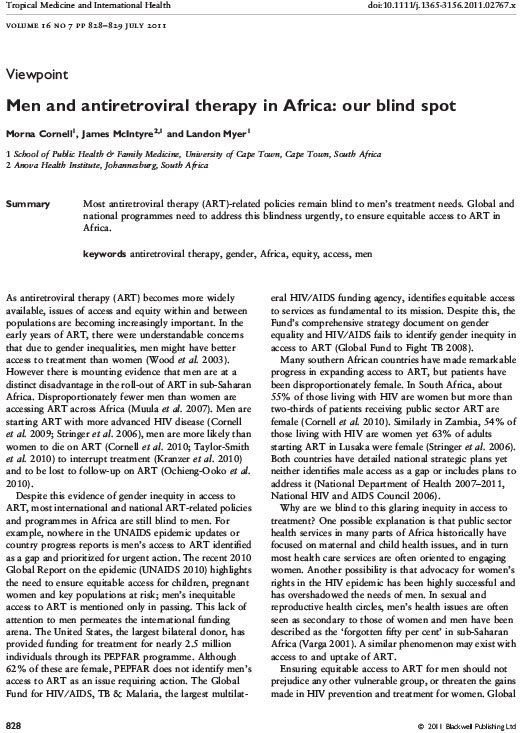
Most antiretroviral therapy (ART)-related policies remain blind to men’s treatment needs. Global and national programmes need to address this blindness urgently, to ensure equitable access to ART in Africa.
HIV services in sub-Saharan Africa: the greatest gap is men
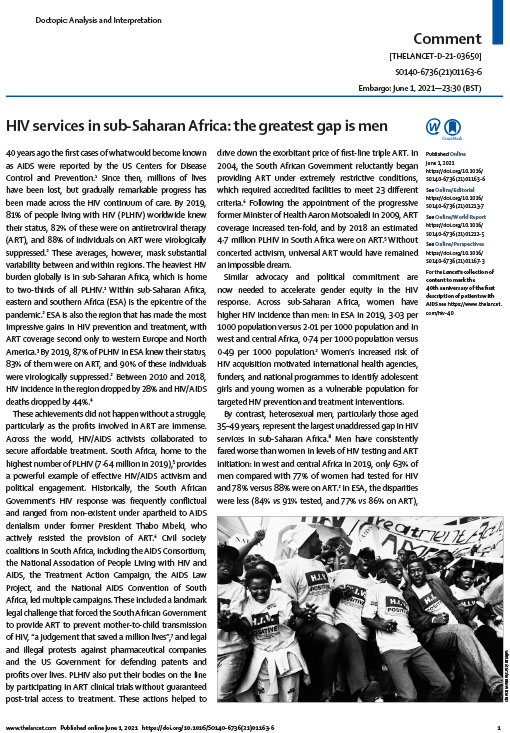
40 years ago the first cases of what would become known as AIDS were reported by the US Centers for Disease Control and Prevention. Since then, millions of lives have been lost, but gradually remarkable progress has been made across the HIV continuum of care. By 2019, 81% of people living with HIV (PLHIV) worldwide knew […]
Gender inequality: Bad for men’s health
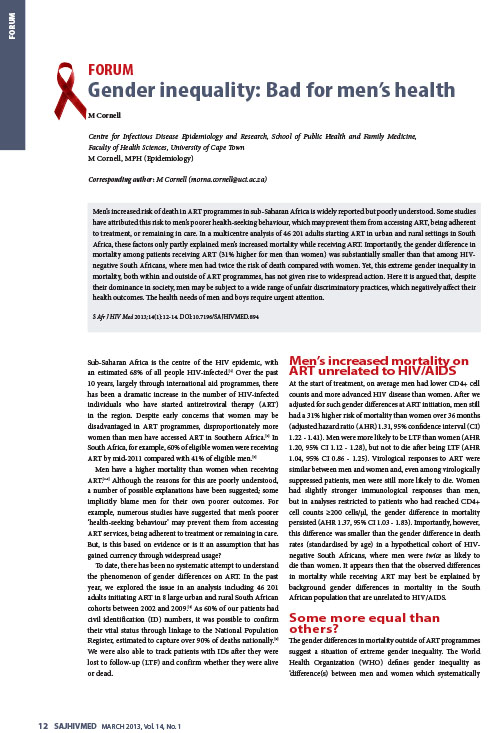
Men’s increased risk of death in ART programmes in sub-Saharan Africa is widely reported but poorly understood. Some studies have attributed this risk to men’s poorer health-seeking behaviour, which may prevent them from accessing ART, being adherent to treatment, or remaining in care. In a multicentre analysis of 46 201 adults starting ART in urban […]


